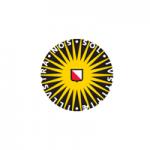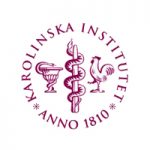项目介绍
Will you join us as a PhD candidate in pharmacoepidemiology and drug regulatory science? In this PhD project, you investigate the rationale and evidence underlying medicine withdrawals in Europe. You evaluate the applicability of real-world data (RWD) for examining relevant outcomes and explores RWD’s potential in signal detection and validation. Additionally, you analyse pre-withdrawal utilisation trends to inform regulatory policy and communication strategies.
Your job
Using a mixed-methods approach, you will lead the scientific conduct of several RWD studies with different designs and methodologies, such as systematic/scoping review, cohort, and case-control analysis, drug utilisation study, as well as qualitative research and/or policy analyses. This includes the following tasks:
- conducting literature reviews;
- conducting several pharmacoepidemiologic studies, including writing the protocol, data analysis, programming, visualisation, interpretation of findings and writing of the results’
- conducting pharmaceutical policy analysis studies including document analysis and qualitative interview studies;
- scheduling, preparing, and attending the regular meetings with the project team, or divisional meetings.
Part of the tasks can be teaching (or assisting in teaching) BSc and MSc courses for a maximum of 10% of your time.
Your qualities
For this position it is important that you are interested in pharmacoepidemiology, regulatory science and real-world-data studies and that you have a growth mindset. You are keen to develop yourself personally and professionally, and you have good communication and teamwork skills. Specifically, you have multiple of the following qualifications:
- a Master’s degree in Epidemiology, Drug innovation, Pharmacy or a closely related field in biomedical sciences (or are close to completing);
- the ability and enthusiasm to learn quantitative and qualitative methods;
- excellent command of English (verbal, written);
- good scientific writing and presenting skills;
- the ability to work independently and be self-reflective;
- a good knowledge of (pharmaco-)epidemiologic methods, including those used in a cohort or case-control design.
- practical experience in working with big data in healthcare, such as electronic medical records, claims, or registry data;
- experience of conducting interviews, performing qualitative research or policy analysis (e.g., using NVivo);
- knowledge and skills of programming in a common platform (such as SAS, or R);
- affinity with teaching;
- basic project management skills.
Our offer
- A position for 18 months, with an extension to a total of four years upon successful assessment at the 18 months;
- a working week of 36 hours and a gross monthly salary between €2,901 and €3,707 in the case of full-time employment (salary scale P under the Collective Labour Agreement for Dutch Universities (CAO NU));
- 8% holiday pay and 8.3% year-end bonus;
- a pension scheme, partially paid parental leave and flexible terms of employment based on the CAO NU.
In addition to the terms of employment external link laid down in the CAO NU, Utrecht University has a number of schemes and facilities of its own for employees. This includes schemes facilitating professional development external link, leave schemes and schemes for sports and cultural activities external link, as well as discounts on software and other IT products. We also offer access to additional employee benefits through our Terms of Employment Options Model. In this way, we encourage our employees to continue to invest in their growth. For more information, please visit Working at Utrecht University external link.
About us
A better future for everyone. This ambition motivates our scientists in executing their leading research and inspiring teaching. At Utrecht University external link, the various disciplines collaborate intensively towards major strategic themes external link. Our focus is on Dynamics of Youth, Institutions for Open Societies, Life Sciences and Pathways to Sustainability. Sharing science, shaping tomorrow external link.
Working at the Faculty of Science external link means bringing together inspiring people across disciplines and with a variety of perspectives and backgrounds. The Faculty external link has six departments: Biology, Pharmaceutical Sciences, Information & Computing Sciences, Physics, Chemistry and Mathematics. Together, we external link work on excellent research and inspiring education. We do so, driven by curiosity and supported by outstanding infrastructure. Visit us on LinkedIn external link and discover how you can become part of our community.
The Utrecht Institute for Pharmaceutical Sciences external link (UIPS) is the research institute of the Department of Pharmaceutical Sciences of Utrecht University. UIPS focuses on processes around discovery, development, and use of drugs and medical nutrition using molecular and technological principles from the Natural and Life Sciences. This research is ideally positioned in the Faculty of Science to work on basic scientific problems and to translate new findings into potential solutions to urgent societal medical needs, which are addressed in the Faculties of Medicine and Veterinary Medicine. Every year around 400 peer-reviewed articles are published and around 30 PhD candidates defend their thesis. UIPS is partner in several open-source innovation networks.
You will be part of the Division of Pharmacoepidemiology and Clinical Pharmacology external link. The Division of Pharmacoepidemiology and Clinical Pharmacology is dedicated to the comprehensive study of medicine use and its impact on patient outcomes. We recognize the inherent variability in drug responses, even after rigorous pre-market testing, and our research seeks to understand these variations with a focus on real-world clinical settings.
The Centre for Pharmacoepidemiology external link is embedded in the division. The centre aims to apply, develop, improve, and evaluate innovative observational pharmacoepidemiologic methods to obtain reliable information on benefits and harms of medicines after marketing in real life. Methodological innovations are inspired by relevant research questions in clinical practice, pharmaceutical policy, and regulation. Important themes are methods to measure impact of interventions, to prevent and/or control for confounding, analysis of effect modification (precision medicine), multi-database analysis, and innovative approaches for increasing validity and richness of data. The Centre for Pharmacoepidemiology has established the EU PE&PV (Pharmacoepidemiology & Pharmacovigilance) Research Network, and has developed novel methodologies for the conduct of multi-country, multi-database studies on variability of medicines’ use and patient outcomes.
More information
For more information, please contact Shahab Abtahi external link at s.abtahi@uu.nl or Christine Leopold external link at c.leopold@uu.nl.
Do you have a question about the application procedure? Please send an email to science.recruitment@uu.nl.
Apply now
As Utrecht University, we want to be a home external link for everyone. We value staff with diverse backgrounds, perspectives and identities, including cultural, religious or ethnic background, gender, sexual orientation, disability or age. We strive to create a safe and inclusive environment in which everyone can flourish and contribute.
If you are enthusiastic about this position, just apply via the ‘apply now’ button. Please enclose:
- your 1-page motivation letter;
- your curriculum vitae of maximum 2 pages;
- the names, telephone numbers, and email addresses of at least two referees;
- a copy of your Master’s degree, or a letter from your university stating when your graduation will take place.
If this specific opportunity isn’t for you, but you know someone else who may be interested, please forward this vacancy to them.
The application deadline is 5 June 2025.
联系方式
电话: +31 (0)30 253 35 50相关项目推荐
KD博士实时收录全球顶尖院校的博士项目,总有一个项目等着你!





